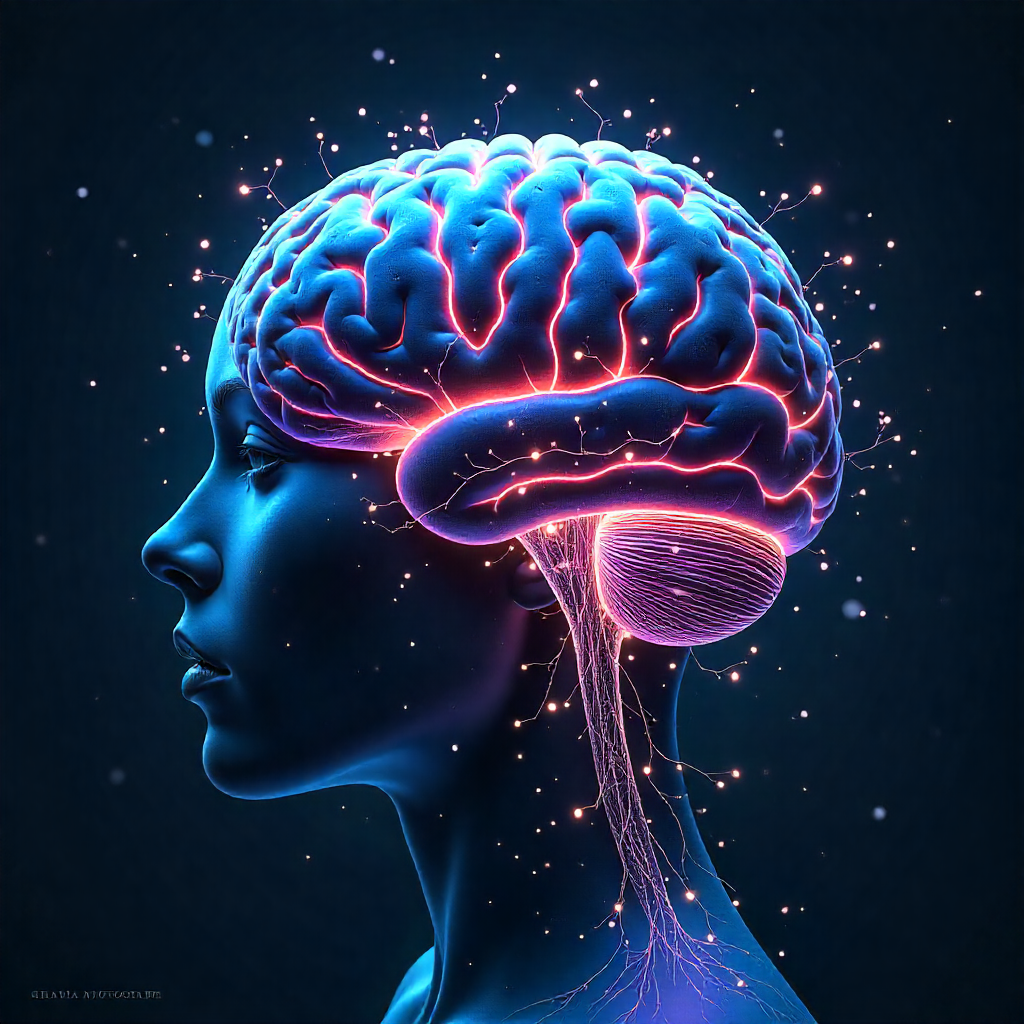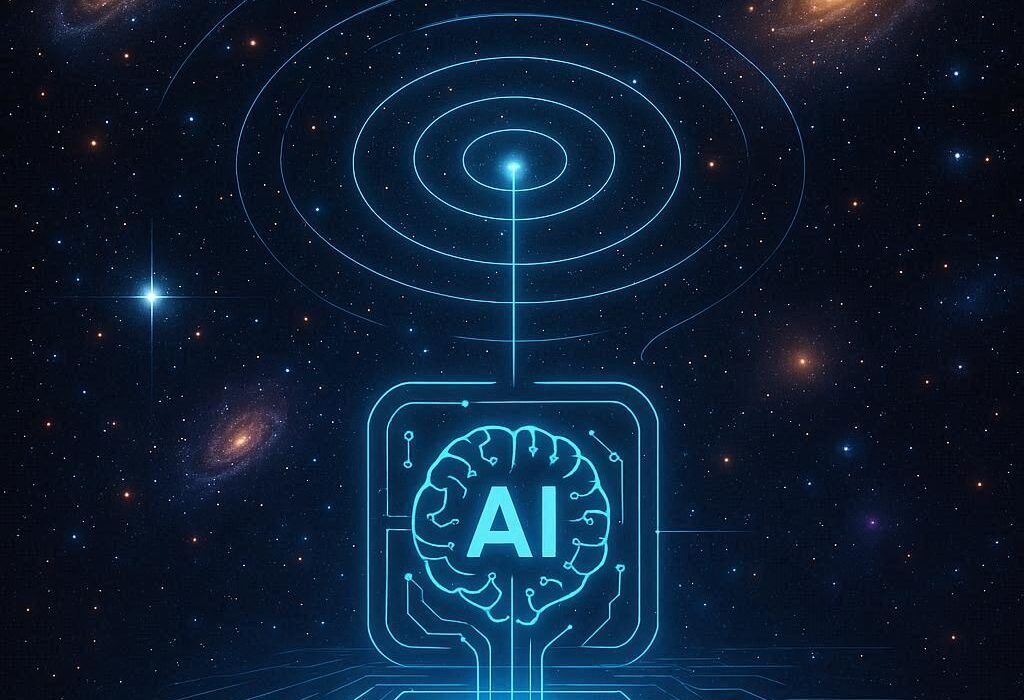The idea of psychic powers has fascinated humanity for centuries. Whether it’s telepathy, clairvoyance, or telekinesis, the concept of supernatural abilities that transcend the normal limits of human perception has been a staple of mythology, science fiction, and even speculative science. But as advancements in neuroscience and technology continue to push the boundaries of what the human brain can do, many are asking: Could humans develop psychic powers with brain enhancements?
This question lies at the intersection of several exciting and controversial fields, including neurobiology, brain-computer interfaces, artificial intelligence, and the study of consciousness itself. While the idea of enhancing the brain to unlock abilities beyond the ordinary seems like a concept straight out of a sci-fi novel, recent breakthroughs in brain science suggest that the possibility is not as far-fetched as it may once have seemed.
In this article, we’ll explore the science behind brain enhancement, the potential for developing psychic abilities, and whether technology can make what was once considered supernatural a reality.
The Nature of Psychic Powers
Before we dive into the question of whether humans could develop psychic powers, it’s important to first understand what is meant by “psychic powers” and how they are typically portrayed in popular culture and the paranormal community.
Psychic powers refer to abilities that supposedly allow individuals to access information, influence events, or affect the physical world in ways that cannot be explained by the known laws of science. These abilities include:
- Telepathy: The ability to transmit thoughts or emotions from one mind to another without using any known sensory channels.
- Clairvoyance: The ability to perceive events or information beyond the normal range of perception, such as seeing things happening in distant locations.
- Telekinesis: The ability to move or influence objects with the mind alone.
- Precognition: The ability to foresee future events.
Throughout history, these abilities have been dismissed by mainstream science as pseudoscience or superstition. However, many continue to claim that psychic phenomena are real, and there is a growing body of anecdotal evidence and a small amount of experimental research that suggests some psychic phenomena may be more than just fantasy.
But what if these abilities could be enhanced or unlocked through scientific means, particularly with advancements in our understanding of the brain? Could neuroscience and brain enhancement techniques pave the way for psychic abilities?
Understanding the Brain and Its Potential
To answer this question, we must first understand the complexities of the human brain. The brain is the most intricate organ in the human body, responsible for processing sensory information, controlling motor functions, regulating emotions, and managing higher cognitive functions such as memory, reasoning, and decision-making.
The brain consists of around 86 billion neurons, each of which can form thousands of synaptic connections to other neurons. These neural networks create the foundation for cognition, perception, and behavior. While scientists have made tremendous strides in understanding how the brain works, we are still only beginning to unravel the full potential of this complex organ.
The idea of enhancing the brain’s capabilities is not new. Humans have been seeking ways to optimize brain function for millennia, from ancient methods of meditation and mindfulness to modern pharmacological interventions aimed at boosting cognition and mental performance. But what if, instead of simply improving memory or focus, we could unlock entirely new, seemingly “psychic” abilities?
Brain-Computer Interfaces: A Gateway to Psychic Powers?
One of the most promising areas of research that could potentially lead to the development of enhanced brain functions, including psychic abilities, is the field of brain-computer interfaces (BCIs). BCIs are devices that allow direct communication between the brain and external technology, bypassing the need for traditional input methods like keyboards, mice, or touchscreens.
BCIs work by detecting electrical activity in the brain and converting it into commands that can be interpreted by computers or other devices. This technology has already shown significant promise in areas such as prosthetics, where it allows people to control robotic limbs with their thoughts. In the future, BCIs could enable even more sophisticated capabilities, such as mind-controlled virtual reality or direct brain-to-brain communication.
If BCIs continue to advance, it’s not difficult to imagine a future in which humans could enhance their brain’s ability to perceive information, interact with others, or even influence objects without traditional sensory input. For instance, a highly sophisticated BCI might allow individuals to communicate thoughts directly, akin to telepathy. Or, in theory, an advanced enough system could enable mind-controlled manipulation of physical objects, mimicking telekinesis.
However, these ideas, while exciting, remain speculative at best. Current BCI technology is still in its infancy, and the complexity of translating thought into meaningful action is a challenge that researchers are only beginning to overcome. Still, the potential for BCI technology to augment human cognition and perception could one day blur the lines between science fiction and reality.
Neuroplasticity: Rewiring the Brain for New Abilities
Another key concept in the pursuit of psychic powers is neuroplasticity, the brain’s ability to reorganize itself by forming new neural connections. For decades, scientists believed that the brain’s structure was relatively fixed after early development. However, modern research has shown that the brain is highly adaptable, capable of rewiring itself in response to learning, experience, or injury.
Neuroplasticity is a central concept in rehabilitation therapies for brain injuries and disorders. However, it also opens up the possibility of intentionally rewiring the brain to enhance specific cognitive functions. Could neuroplasticity be harnessed to enhance abilities such as intuition, perception, or even the ability to sense distant events?
Research into neuroplasticity has demonstrated that people can train their brains to improve cognitive functions like memory, attention, and problem-solving. In theory, this plasticity could be extended to abilities beyond the ordinary, potentially enabling humans to develop skills that resemble psychic powers. For example, with intensive training and the right stimulation, individuals might be able to strengthen their intuitive abilities, leading to something like clairvoyance or precognition.
While the idea of enhancing psychic abilities through neuroplasticity is still largely hypothetical, ongoing research into brain training and cognitive enhancement provides hope that, with time and effort, humans might unlock new perceptual abilities that were previously thought to be supernatural.
Genetic Enhancement and the Future of Human Cognition
Another avenue for brain enhancement lies in the realm of genetics. Advances in gene editing technologies, such as CRISPR-Cas9, have made it possible to manipulate the human genome with unprecedented precision. This raises the possibility that genetic modifications could be used to enhance certain cognitive traits, potentially leading to new abilities that might seem psychic in nature.
For example, genetic modifications could theoretically boost the brain’s processing power, improve memory retention, or even increase the sensitivity of the senses. Some researchers speculate that genetic changes could one day lead to abilities that allow humans to perceive the world in ways we currently cannot, such as sensing electromagnetic fields or detecting subtle changes in the environment that are currently imperceptible to most people.
While the ethical and practical challenges of genetic enhancement are enormous, the possibility of using gene editing to enhance brain function and unlock new abilities is becoming increasingly plausible. If these enhancements could be directed toward boosting intuition or sensory perception, it’s conceivable that humans could one day develop abilities that seem to be psychic in nature.
The Limits of Technology and Human Biology
Despite the exciting possibilities, there are inherent limitations to what technology and brain enhancements can achieve. The human brain, while incredibly powerful, is still bound by biological constraints. Our senses are limited, our cognitive abilities are finite, and the neural architecture of the brain is not infinitely malleable.
Moreover, many psychic phenomena—such as telepathy, precognition, or telekinesis—defy the known laws of physics and biology. There is no evidence to suggest that the brain, even with advanced enhancements, can access information beyond the constraints of time and space. While the idea of manipulating the physical world with the mind is fascinating, it challenges our current understanding of the laws that govern the universe.
Furthermore, any attempt to enhance the brain carries significant ethical concerns. The potential for creating cognitive “superhumans” raises questions about equity, privacy, and the unintended consequences of altering the brain’s natural functioning. Brain enhancements could lead to profound societal changes, both positive and negative, and it’s impossible to predict the full scope of their impact.
Conclusion
The question of whether humans could develop psychic powers with brain enhancements remains an open one. While significant progress is being made in fields like brain-computer interfaces, neuroplasticity, and genetic enhancement, the leap from enhancing cognitive abilities to manifesting abilities like telepathy or telekinesis is enormous.
For now, psychic powers remain in the realm of science fiction, and while the boundaries of human cognition and perception are being stretched, there is no concrete evidence to suggest that humans can ever transcend the limits of biology in the ways that psychic phenomena suggest. However, with continued advancements in brain science, artificial intelligence, and genetic engineering, the future may hold surprises that blur the lines between the supernatural and the scientifically possible.
In the end, whether or not humans can develop psychic powers with brain enhancements, the exploration of the human mind’s potential is an exciting frontier that will continue to captivate our imaginations for years to come. As we unlock new layers of our brain’s capabilities, we may find that our true potential is far greater than we ever imagined.





